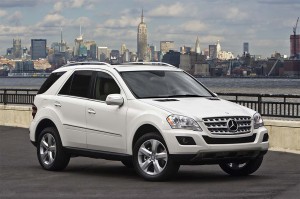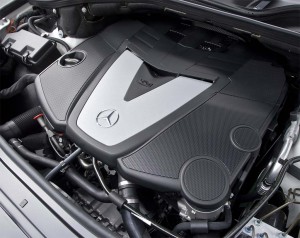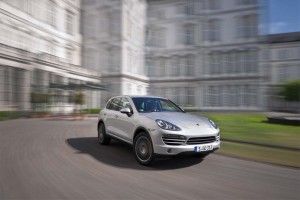Daimler AG plans to spend about $255 million to recall and repair 3 million diesel vehicles that are at the center of a probe looking at whether the automaker rigged them to illegally pass emissions tests.
The automaker has been accused of using a so-called “defeat device,” an approach similar to that used by Volkswagen AG to rig 11 million diesel vehicles sold around the world. The Daimler recall, for now, is limited to models sold in Europe. But an investigation is underway in the U.S., as well, the Environmental Protection Agency stating it is “continuing to evaluate light-duty vehicles from a number of manufacturers.”
Separately, the CEO of Porsche AG said the automaker is considering whether to halt the sale of diesels all together. Porsche shared one of the two rigged diesels produced by its parent Volkswagen in a number of different models.
The decision to recall 3 million vehicles sold by Daimler come less than a week after a German newspaper, the Sueddeutsche Zeting, reported that Mercedes’ parent had been accused of using a defeat device to cover up for excess emissions, notably those of smog-causing oxides of nitrogen.
(Click Here for the newspaper’s original report.)
The size of the recall came as a surprise, however, as the paper said German prosecutors were looking at 1 million potentially defective diesel vehicles. Following that report, Daimler shares plummeted, analysts and investors worried about the potential cost of such a scandal.
So far, VW has spent about $30 billion, including fines, fees and an extensive buyback covering nearly 500,000 vehicles sold in the U.S. According to some analysts, Daimler could be hit with fines of as much as $300 million if it were proven to have cheated on U.S. emissions laws.
Stuttgart-based Daimler – which also operates the Smart city car brand – did not acknowledge having cheated on emissions tests but said of the recall, “In this way, Daimler is making a significant contribution to the reduction of nitrogen-oxide emissions from diesel vehicles in European inner cities.”
The recall expands upon an earlier, more-limited service action and covers almost all models that were required to comply with the EU5 and EU6 emissions mandates. Europe has relatively lax rules on diesel exhaust gases, at least compared to the U.S., but the standards have been growing increasingly stringent.
Some European regulators have been pushing to ban diesels outright, including officials in Paris. Indeed, the regional government of Baden-Wuerttemburg, Daimler’s home state, had considered enacting a diesel ban, only agreeing to drop that proposal if older, dirtier models could be cleaned up, according to Germany’s dpa news service.
Daimler has said it is cooperating with both German and U.S. investigators, the Justice Department asking the company to conduct an internal probe of the matter.
A number of automakers have come under fire for allegedly rigging their diesels. That includes Fiat Chrysler Automobiles, which is being sued by the U.S. government for alleged emissions issues involving models such as the diesel-powered versions of its Ram pickup and Jeep Grand Cherokee.
(For the latest on the FCA diesel case, Click Here.)
In the face of the ongoing emissions probe, Daimler decided not to sell diesels in the U.S. during the 2017 model-year and it has not confirmed its plans for 2018. But, for Europe and some other markets, it claims it can meet emissions targets with an all-new four-cylinder diesel, dubbed the OM 654, that first appeared in the latest-generation E-Class family last year. That engine will now be rolled out across the Mercedes product line.
As for Volkswagen, the maker has said it will no longer sell diesels in the U.S. under the VW brand, though upscale Audi plans to use the technology in a limited number of products. The maker’s sports car brand, meanwhile, is considering whether to drop diesels entirely.
“We are looking into this issue,” CEO Oliver Blume said in an interview with the Reuters news service on Tuesday. “We have not made a decision on it.”
A diesel will continue to be offered in current models, Blume noted, including an updated version of the Cayenne due out later this year. But it may abandon the technology as replacements for existing models come to market.
Like the VW and Audi brands, Porsche is also under investigation for possible diesel rigging.
(U.S., German prosecutors file charges in Audi diesel case. Click Here for the story.)



